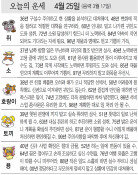Japans history institutions to counter Abes comfort women perception
Japans history institutions to counter Abes comfort women perception
Posted December. 12, 2014 04:12,
Four Japanese historians groups will hold a meeting Friday to discuss measures to counter Japanese Prime Minister Shinzo Abes distorted view of the wartime sex slavery issue. The historians direct criticism of Abe will likely undermine the Abe administration`s logical grounds for denying the Japanese militarys involvement in the sex slavery.
Sanae Fukuto, a historian at Saitama Gakuen University, told the Dong-A Ilbo on Monday that a four-party meeting on history will be held at Keio University in Tokyo to discuss future tasks, including ways to counter the Abe administrations distortion of the sex slavery issue.
The four-party meeting is a consultative body involving Japans four major academic societies on history and history education A joint decision by the organizations is expected to set the academic standards for history societies across Japan. No historian in Japan argues that there was no forceful mobilization (of the so-called comfort women), she said. Prime Minister Abe is a historical revisionist, and what he is saying is based on no historical evidence. As a historian, I feel so ashamed about Prime Minister Abes perception of history.
Separately, Tsutomu Suda, a professor of information and communication at Meiji University and the head of a Tokyo-based history research group, said in late November that it was evident that the comfort women was forcibly mobilized by the Japanese military and served as sex slaves. He also stressed the importance of joining hands with civic groups studying the sex slavery issue, suggesting his possible collaboration with non-governmental organizations on the issue.
In mid-October, Japan`s Association for Research on History, an authoritative scholarly organization and a member of the four-party meeting, became the first Japanese historical society to issue a statement rebutting Abes perception of the sex slavery issue. The association posted an English-translated version of the statement on its Internet homepage last Friday to promote world medias awareness of the issue.
Headline News
- Med professors announce intention to leave hospitals starting Thursday
- Bridge honoring Sgt. Moon Jae-sik unveiled in Pennsylvania
- Chief of Staff Chung tells presidential secretaries to stay away from politics
- US FTC bans noncompete agreements
- N. Korea launches cyberattacks on S. Korea's defense companies







